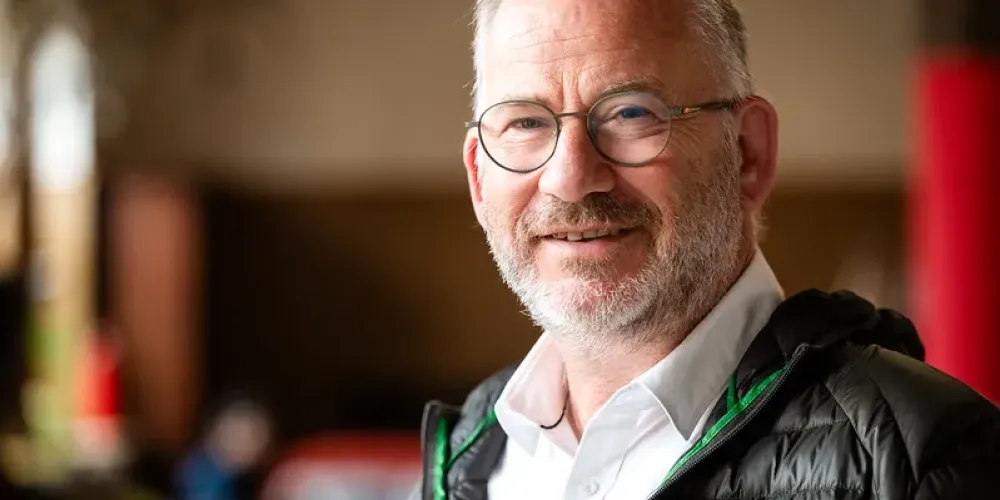
Jan Steyaert, from the VIB-VUB Center for Structural Biology and Professor at VUB, has been awarded a prestigious ERC Proof of Concept Grant. These competitive grants by the European Research Council help scientists take their ERC-funded discoveries a step closer to real-world applications. Jan will use the grant to advance promising immunotherapy leads from his 2023 ERC Advanced Grant and move them closer toward clinical development.
In his 2023 ERC Advanced Grant, Jan Steyaert challenged the dominant dogma of immunotherapy. Jan's insight was simple but radical: in nature, cells don’t usually regulate each other by blocking signals. Instead, they adjust the strength or timing of those signals - gently turning the volume up or down rather than hitting the mute button.
Steyaert’s lab is pioneering tiny, highly specific antibodies to create the first therapeutic molecules that enhance immune signalling through a process called allostery, where a molecule binds to one part of a receptor to influence how it behaves elsewhere.
These molecules, called positive allosteric modulators (PAMs), boost immune receptors, rather than shutting them down, introducing a completely new way to influence the immune system.
Validation in autoimmune disease
Now, with his new ERC Proof of Concept Grant, Jan is exploring whether this allosteric approach could help treat autoimmune diseases. The project, PAMinMICE, builds on a major breakthrough: Jan and his team have already identified the first-ever PAMs that target specific immune checkpoints.
The next step is testing these molecules in ‘double-humanized’ lab mice that carry human versions of the targeted immune checkpoints. These models allow researchers to study diseases like psoriasis, colitis, lupus, atopic dermatitis, and rheumatoid arthritis. The goal is to find out whether these PAMs can rebalance the immune system and ease symptoms in these conditions. If it works, using PAMs to treat autoimmune diseases will lead the way to a new class of safer, more effective immunotherapies.